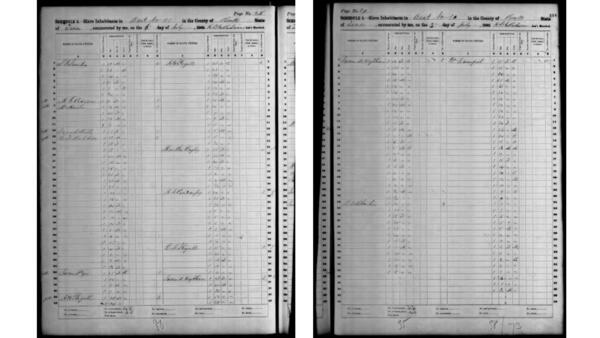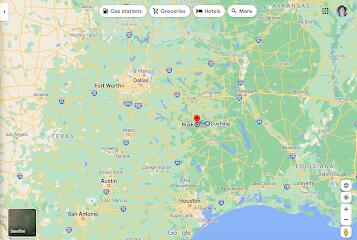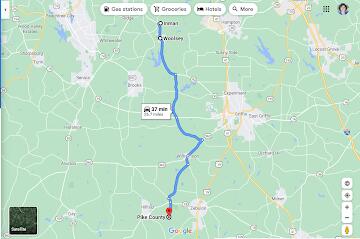
On June 19, 1865, Major General Gordon Granger along with 2,000 Union soldiers finally reached Texas, and issued the order, as the last state to receive news that the Civil War had ended and “all persons held as slaves” within the rebellious states "are, and henceforward shall be free" by President Lincoln’s signing of the Emancipation Proclamation.1
Though two-and-a-half years later than the Emancipation Proclamation, for the freed people of Texas, Juneteenth was, from its earliest forms, an occasion for gathering family members, measuring progress toward freedom, and ingratiating rising generations with the values of self-improvement and racial uplift. The celebration of Juneteenth has progressed over time, and in 1979, Texas became the first state to make Juneteenth an official holiday. Since then, forty-four other states and the District of Columbia have recognized Juneteenth as a state holiday or observance.
In our celebration of Juneteenth and Black liberation, we recognize the importance of connecting with our history, recognizing that those who walk among us are the descendants of this time in our nation’s past.
Read her powerful story below to discover how she has harnessed the strength of history to step into her power.
“Last December, I spent a week of my vacation researching my children’s ancestors on my husband’s side of the family, [the Hightowers], which I knew came from Texas,” said Rojas-Soto. “Knowing my family history is very important to me in finding and recognizing my inner strength for advocacy, creativity, and pursuing a better future.”
My Family's Ancestors
Through research on a free genealogy site, Rojas-Soto embarked on a journey of discovery. She started humbly and wondered what she could find. As she researched the pre-Civil War years, the records were not in the name of her children’s ancestors but in the names of those who owned them.
“According to the white genealogy site, all the white U.S. Hightowers descended from one single English couple who landed in Virginia during 1653,” she shared. After discovering a white Hightowers timeline and connecting the dots through educated guesses, it is possible that the enslaved Hightowers that were taken to Texas came from a 900+ acre plantation in Georgia (within the area below).
By the early 1800s, the United States was home to about 1 million enslaved people and that number just kept growing. Rojas-Soto’s research, through U.S. Census records, has also shown that the Black Hightowers that moved to Texas were either in Rusk or Cushing, Texas. Given the timing, “it is possible that [my children’s ancestors] were enslaved in the household of James M. and Rebecca Hightower, white Hightowers who came to Rusk, Texas around 1853-1857.”
In fact, the Slaveholder Census Record of 1860 shows James M. having a total of 28 slaves in Rusk, Texas:

With so many questions lingering like, “Who were they?” “What were they like?,” one thing was clear, “this is the documentary darkness of American slavery.”3 The Black Hightowers appear in these records, but only as objects being taxed. Yet, their ages that ranged from 6 months to 48 years old were listed. We can see that the government was gathering data on the “number of slaves” owned and whether they were “deaf and dumb, blind, insane, and idiotic.”4 Certainly it is difficult to read these records, and not in terms of the handwriting (though that may be a challenge), but as Rojas-Soto mentioned, “the uncertainty of not knowing this history is destabilizing.”
As the research continued, “to my surprise, I was able to find [our family ancestors] by name as far back as 1870, the first census in which Blacks would have been listed by name, instead of as property in the slave records.”

From stories passed down, the Black Hightowers showed so much life force — they owned land in the 1880’s, they were literate, and they prioritized education, especially for girls, so they wouldn’t be subservient to their husbands. “Much for me to be inspired by.”
Stepping Into My Power
“Some of their great grandchildren moved to California,” shared Rojas-Soto. “Today, I have the privilege of raising four of their descendants.”
“Knowing has been a great source of strength for us over the past few months,” she added. “With this information, it feels like removing the dust,” described Rojas-Soto, “there’s clarity on who came before us that fought so hard, survived slavery, and were resilient. Through my children, I am connected,” she affirmed. “This history gives me more strength in my advocacy today.”
“I am stepping into my power as a parent of four Black Latinx children and a professional, connecting the long-term patterns of civilization, industrial revolution, and capitalism, to the decisions that have been made for Black Americans, and how we respond in the present, reclaiming agency, modeling joint determination, and pursuing equitable systems relentlessly.”
“When we walk down the street, who do we see?,” asked Rojas-Soto. Those who walk among us are the descendents of Martin Luther King Jr., Rosa Parks, but also the Turner Hightowers and Mary Blantons in the world, and many more. In other words, it’s important to connect with our history to be grounded in the present and make progress. “We’re here for a reason,” she stressed.
A Part of Something Bigger Than Ourselves
“To celebrate Juneteenth, my family will be together, looking through old photos, and sharing stories. We'll also be attending one or two cultural events in the city.” This holiday also serves as a reminder of the work that is still needed to guarantee liberty and equity for all.
Rojas-Soto concludes with some inspiring words: “My ancestors didn't have any evidence that a better future was possible, and yet, they persisted, because they could imagine it.”
We are a part of something bigger than ourselves.
In celebration of Juneteenth, KIPP SoCal will honor a day of action by closing Friday, June 18th for commemoration, education, and connection. KIPP SoCal first commemorated Juneteenth last year, and we will continue to do so going forward. However you decide to take action, please know that KIPP SoCal joins you in working to dismantle systems of oppression in our continued fight for racial justice.
We will continue to reflect, evaluate, and evolve, in order to create a work and learning space where all are welcomed and embraced at KIPP SoCal.
 Michelle Rojas-Soto serves as Chief Talent and Equity Officer of KIPP SoCal. Previously, she was Managing Director at Encompass, a racial equity nonprofit consultancy. Michelle has 20 years of leadership experience in nonprofit and social enterprise work, always focused on equity, systemic improvement, and community-building. She volunteers with the Coalition for an Anti-Racist Glendale, leading the policing subcommittee.
Michelle Rojas-Soto serves as Chief Talent and Equity Officer of KIPP SoCal. Previously, she was Managing Director at Encompass, a racial equity nonprofit consultancy. Michelle has 20 years of leadership experience in nonprofit and social enterprise work, always focused on equity, systemic improvement, and community-building. She volunteers with the Coalition for an Anti-Racist Glendale, leading the policing subcommittee.
Michelle is the past chair of the Glendale Unified School District inclusion committee, past Social Justice Director of the Eagle Rock Neighborhood Council, founding member of Gender Equity in Animal Rights, and past organizer of Los Angeles Tech4Good. Michelle has a Master's in Biology from Caltech and a Master's in Business Administration from USC.
1 National Archives. Retrieved from www.archives.gov.
2 “7 Steps to Finding Your Slave Ancestors.” Retrieved from www.familytreemagazine.com.
3 “1860 Census: Population of the United States.” Retrieved from www.census.gov.

